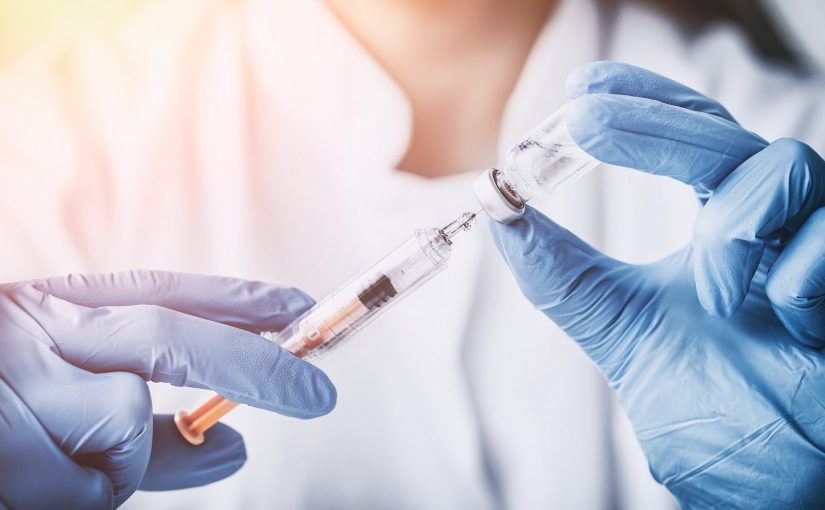A novel cancer vaccine made from autologous whole-tumor and dendritic cells significantly improved survival in women with recurrent advanced epithelial ovarian cancer (EOC), given alone or in combination with standard immunomodulatory therapy, researchers found.
An international pilot study in 25 platinum-treated, immunotherapy-naïve patients with recurrent advanced EOC showed that at 24 months, the overall survival (OS) was 100% in 20 patients who responded to a vaccine developed from autologous dendritic cells pulsed with oxidizedtumor lysate.
This rate was compared with an OS of 25% in vaccine non-responders, said Lana E. Kandalaft, PhD, of the University of Pennsylvania in Philadelphia, and the Ludwig Institute for Cancer Research in Lausanne, Switzerland, and colleagues.
Although the median time to progression in responders was more than 15 months, one-third had not progressed at 24 months, the study authors reported online in Science Translational Medicine.
More than 60% of patients who demonstrated potent antitumor T cell responses, including to new epitopes, experienced remission inversion. Over a follow-up period of up to 2 years, 392 doses of the autologous whole-tumor antigen dendritic cell vaccine were administered without serious adverse events, the investigators said.
“[W]e demonstrated that our vaccination approach can effectively mobilize antitumor immunity in ovarian cancer patients,” they wrote. “We conclude that the use of oxidized whole-tumor lysate DC [dendritic cell] vaccine is safe and effective in eliciting a broad antitumor immunity, including private neoantigens, and warrants further clinical testing.”
The autologous whole-tumor antigen dendritic cell vaccine can be made “in sufficient quantities with relative ease,” they added.
“Our results demonstrate that personalized vaccines made out of patients’ own tumors can induce an immune response that correlates with a higher progression free survival and a higher overall survival,” Kandalaft told MedPage Today.
“Furthermore, when our vaccine was combined with SOC [standard of care] drugs, we observed higher survival than in patients receiving drugs alone. These results are very encouraging for patients with ovarian cancer, where there is a clear unmet need.”
The clinical trial with three patient cohorts was conducted at the Abramson Cancer Center at the University of Pennsylvania, and the immunologic analyses were conducted at the Ludwig Cancer Research Institute Lausanne.
In cohort 1, five patients received the vaccine via intra-nodal injection every 2 weeks. In cohort 2, 10 patients received the vaccine plus IV bevacizumab (Avastin; 10 mg/kg) on the day of vaccination. In cohort 3, patients received the vaccine and IV bevacizumab plus IV low-dose cyclophosphamide (Cytoxan; 200 mg/m2) 24 hours prior to each vaccination.
At 12 months, OS was 100% in cohort 3 compared to 60% in an historic control group of 56 matched patients who received standard therapy with bevacizumab and cyclophosphamide but no vaccine (P=0.0094). At 24 months, OS was 78% in cohort 3 compared to 44% in the control group (P=0.046).
Notably, OS was significantly higher at 12 and 24 months in cohort 3 patients who received cyclophosphamide prior to immunization compared to cohort 2 patients who received no cyclophosphamide. OS was also significantly higher than previously reported with bevacizumab-based biological combinations, the researchers said.
“The 2-year survival of the cohort who received the full combination was considered promising, albeit preliminary, compared to literature and historic institutional controls,” the investigators noted.
These results also demonstrated how autologous whole-tumor antigen dendritic cell vaccines might be integrated into standard therapeutic strategies, Kandalaft said. If larger, randomized, placebo-controlled trials produce similar results, a new therapeutic strategy “could be implemented swiftly,” she said in a statement.
“Bevacizumab and cyclophosphamide are routinely used to treat recurrent ovarian cancer. All we did was add the vaccine,” she pointed out. “This means that we should be able to easily integrate this personalized immunotherapy into the current standard of care for recurrent ovarian cancer.”
Kandalaft said she sees a couple of potential therapeutic niches for the vaccine. In patients who have completed surgery and chemotherapy, vaccination could prolong progression-free survival. About 85% of ovarian cancer patients relapse during this period of watchful waiting, she noted.
The vaccine could also help prevent recurrence when used in combination with a checkpoint blockade inhibitor. “Response rates are low for checkpoint blockade inhibitors in this population of patients so the combination of vaccine with checkpoint blockade inhibitors could improve the response rates,” she explained.
“Even though vaccines have not been successful in the last decade, our deeper understanding of the immune system combined with the recent advances in technologies enables us to produce better vaccines,” Kandalaft said. “We now know better how to vaccinate, what population of patients we should vaccinate, and what we should use in combination with vaccines.”
The research team plans to study the vaccine in up to 30 patients with ovarian cancer who have completed chemotherapy and surgery at the University Hospital of Lausanne. That study will open towards the end of 2018, Kandalaft said.
To read this article and more in The Clearity Portal, please click here.


